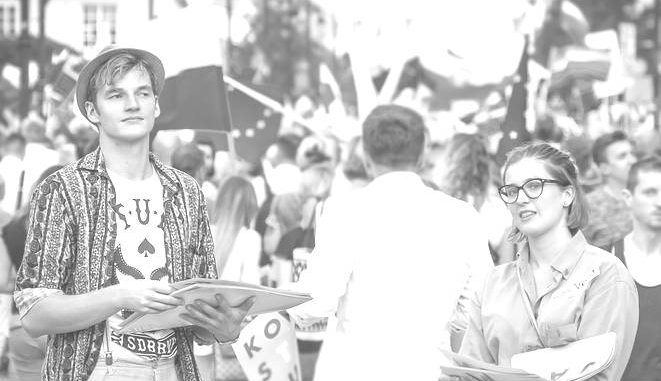
Migrants and refugees appear to be between a rock and a hard place: die in Libya under horrendous conditions or manage to cross the Mediterranean alive. No one seems to be willing to connect this situation with the Paradise Papers. It is the ruthless capitalism of international corporations that is destroying Africa. The obscene wealth extraction of these corporations and their accomplices among African elites that is being removed from the African continent and surreptitiously deposited in tax havens. Left behind are millions of Africans who have no alternative but to leave their homes and communities and seek an existence in Europe if they are to have any prospect of survival.
Cross-posted from the OHCHR.Website
The UN Human Rights chief today expressed dismay at the sharp increase in the number of migrants held in horrific conditions at detention facilities in Libya, saying the European Union’s policy of assisting the Libyan Coast Guard to intercept and return migrants in the Mediterranean was inhuman.
“The suffering of migrants detained in Libya is an outrage to the conscience of humanity,” Zeid Ra’ad Al Hussein said. “What was an already dire situation has now turned catastrophic.
“The detention system for migrants in Libya is broken beyond repair,” said Zeid. “Only alternatives to detention can save migrants’ lives and physical security, preserve their dignity and protect them from further atrocities.
“The international community cannot continue to turn a blind eye to the unimaginable horrors endured by migrants in Libya, and pretend that the situation can be remedied only by improving conditions in detention,” he said, calling for the creation of domestic legal measures and the decriminalisation of irregular migration to ensure the protection of migrants’ human rights.
According to Libya’s Department of Combatting Illegal Migration (DCIM) 19,900 people were being held in facilities under its control in early November, up from about 7,000 in mid-September when authorities detained thousands of migrants following armed clashes in Sabratha, a smuggling and trafficking hub, about 80 kilometres west of Tripoli.
The EU and Italy are providing assistance to the Libyan Coast Guard to intercept migrant boats in the Mediterranean, including in international waters, despite concerns raised by human rights groups that this would condemn more migrants to arbitrary and indefinite detention and expose them to torture, rape, forced labour, exploitation and extortion. Those detained have no possibility to challenge the legality of their detention, and no access to legal aid.
“The increasing interventions of the EU and its member states have done nothing so far to reduce the level of abuses suffered by migrants,” the UN’s High Commissioner for Human Rights said. “Our monitoring, in fact, shows a fast deterioration in their situation in Libya.”
From 1-6 November, UN human rights monitors visited four DCIM facilities in Tripoli, where they interviewed detainees who have fled conflict, persecution and extreme poverty from states across Africa and Asia.
“Monitors were shocked by what they witnessed: thousands of emaciated and traumatized men, women and children piled on top of each other, locked up in hangars with no access to the most basic necessities, and stripped of their human dignity,” Zeid said.
“Many of those in detention have already been exposed to trafficking, kidnappings, torture, rape and other sexual violence, forced labour, exploitation, severe physical violence, starvation and other atrocities in the course of their journeys through Libya, often at the hands of traffickers or smugglers.”
A man held in Tarik al-Matar DCIM centre, where some 2,000 migrants were packed into a hangar without functioning toilets, told UN staff: “We are like a box of matches, we don’t sleep, we have diseases, we lack food, we didn’t shower for months. We will all die if not saved from this place, this is Calvary, it is excessively difficult to survive the smell of faeces and urine, many are [lying] unconscious on the floor.”
Men, women and children held at DCIM centres recounted beatings at the hands of the guards. “They beat us every day, they use electric sticks, just because we ask for food or [medical] treatment or for information about what will happen to us,” a migrant from Cameroon told monitors.
Women recounted rape and other sexual violence at the hands of smugglers and guards. A woman from Cote d’Ivoire told UN staff that during her journey: “Armed men came in and chose six women, including me, and took us out one by one. When I first refused, I was slapped and a gun was pointed at my head. Four men raped me outside. I was in early stages of pregnancy, I bled profusely, and I think I lost the baby. I haven’t seen a doctor yet.”
In another case, a Sub-Saharan African woman said, “I was taken away from the DCIM centre and raped in a house by three men including a DCIM guard.
The UN Human Rights Office urges the Libyan authorities to take concrete steps to stamp out human rights violations and abuses in centres under their control, to remove those reasonably suspected of carrying out violations, to investigate and prosecute those responsible, and publicly signal that such abuses will no longer be tolerated. It also calls for migrants not to be detained and that all centres be open.
“We cannot be a silent witness to modern day slavery, rape and other sexual violence, and unlawful killings in the name of managing migration and preventing desperate and traumatized people from reaching Europe’s shores,” said Zeid.


Be the first to comment